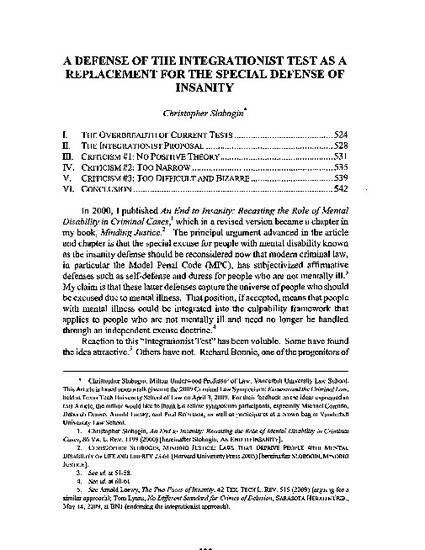
- mental disability,
- insanity test,
- criminal conduct
- Criminal Law and
- Law
This article, written for a symposium on "Criminal Law and the Excuses," defends the "Integrationist" approach to analysis of the exculpatory effect of mental disability that I developed in Chapter Two of my book, Minding Justice: Laws that Deprive People with Mental Disability of Life and Liberty. The book argues that the special nature of the insanity defense should be reconsidered now that modern criminal law, in particular the Model Penal Code, has subjectivized affirmative defenses such as self-defense and duress for people who are not mentally ill. More specifically, the claim is that these latter defenses capture the universe of people who should be excused due to mental illness, a claim which, if accepted, means that people with mental illness can be integrated into the culpability framework that applies to people who are not mentally ill and need no longer be handled through an independent excuse doctrine. Since the book was published in 2006, several commentators, including Richard Bonnie, Michael Corrado, Paul Litton, Matt Matravers, Stephen Morse, and Susan Rozelle, have registered objections to it. These criticisms can be organized under three general categories: the Integrationist Test is under-theorized; it fails to exculpate offenders who clearly should be excused; and it suffers from implementation difficulties. This article responds to these objections.
Available at: http://works.bepress.com/christopher-slobogin/9/
